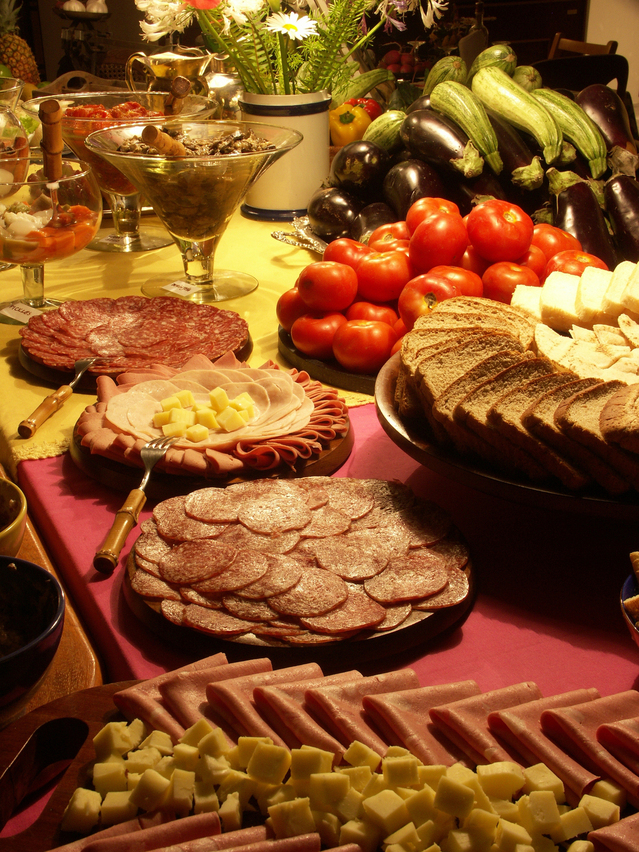What is gluttony? How to avoid it? These questions are so simple, but for many years as a Christian I could not give a clear answer to them as this subject seems to be taboo, even among Christian people.
To answer these questions, I had to study a text of Richard Baxter, a puritan who lived during the 17th century.
In the third volume of his book “The Practical Works”, Richard Baxter deals with the sin of gluttony. The full text can be found here. I found his text very interesting, but as it is quite long I’m going to summarize it and try to make it a bit easier to read.
Gluttony according to Baxter
Gluttony is voluntary excess of eating. It can be an excess of quantity, of taste, of frequency, of time spent at the table or of cost.
The most common type of gluttony is for the pleasing of the appetite. It hurts the body and the soul.
Gluttony is the greatest sin. Here is a list of reasons why:
- Gluttony is a form of idolatry. Gluttons love the pleasures of food more than the pleasures of God.
- Gluttony is self-murder: though it doesn’t kill suddenly, it kills little by little. Eating too much makes the body malfunction and has an effect on every part of the body and can become a cause of disease and of death.
- Gluttony is also a deadly enemy to the mind. It makes it more difficult to read or hear the Word of God. So gluttony is an enemy of the Christian walk.
- Gluttony is to live according to the flesh.
- Gluttony makes people drowsy and less able to work hard: eating healthily helps in contemplation, meditation, reading, prayer, self-examination, etc. while unhealthy eating makes these things more difficult to do.
- Gluttony is a great time and money wasting sin.
- Gluttony is a common sin committed by rich and poor alike. People encourage each other in this sin and those who try to avoid it are rare.
Here is a list of causes of gluttony:
- Eating too much because we like what we are eating.
- When eating too much becomes a habit, it makes it difficult to decrease the appetite and requires discipline.
- Idleness makes us eat more, while business makes us forget our hunger.
- Rich or proud men desire more costly food and drink because they have high standards and expectations. They believe they deserve it or want to impress others.
- When inviting someone to a meal, people often encourage their guests to eat too much. We shouldn’t push others to eat more than they need.
- A lack of understanding of what is good and what is bad for the body. So people may think that eating as much as their appetite tells them to is good and natural, when actually it is bad for their health.
- Following the example of others.
Here are some ways to try and avoid this sin:
- Think on how much you lose for so little pleasure and remember how damaging this sin is.
- Live faithfully for God, and focus on spiritual and durable sources of joy.
- See all of your food as provided and given to you by God.
- Consider the price that Christ has paid for you sins.
- Remember how the first sin came into the world: by eating the forbidden fruit.
- Learn to know what is good for your health.
- Don’t make your table a snare of temptation for yourself or others.
- Decrease the cost of your meal.
- When you feel that you want to eat something purely for the pleasure and indulgence of “having a treat”, try and resolve not to give in to those feelings.
- Remember that the first Christians often fasted and were strangers to gluttony and excess.
A healthy body helps lead to a holy soul. Most people could eat more than their bodies allows them to, and would kill themselves if they pleased their appetites. But don’t go too far into abstinence and fasting as it can become harmful.
The quantity of food that someone can have without it being excessive depends on its activity. Someone very active will need more food, simply because their bodies needs more.
A few quotes
“Luxury and gluttony is a sin exceeding contrary to the love of God: it is idolatry:
it has the heart, which God should have; and therefore gluttons are commonly and well called belly-gods, and god-bellies, because that love, that care, that delight, that service and diligence which God should have is given by the glutton to his belly and his throat.”
“And now you may see also, that it is no wonder if no one of the commandments expressly forbid this sin, (not only because it is a sin against ourselves directly, but also) because it is against every one almost of the commandments.”
“Nature has given you reason as well as appetite, and reason tells you, that your health is more to be regarded than your appetite”
“I hope you will not say, that God is too strict with you, or would diet you too hardly as long as he allows you (ordinarily) to choose that (when you can have it lawfully) which is most for your own health, and forbids you nothing but that which hurts you.”
Conclusion
I’m not sure I would agree with every point of this text, but I do believe that there are lots that we can learn from it. It is rare that someone explains this sin in so much detail. We can see that we should all be careful about gluttony and that everyone can easily fall into it. Baxter points at the fact that the limit between what gluttony is and what it is not, is very often health. Gluttony goes against our health. So it is important to understand our bodies and what is good for it.
Puritans are often criticized and seen as being against all kinds of pleasure. What we can see in this text is that Baxter highlights the fact that earthly pleasures are often a hindrance to the real joy found in Christ and that we can enjoy pleasure from food as long as we don’t sin. By getting rid of gluttony we are not losing anything, but gaining something as it helps us to be healthier, happier and closer to Christ.
You may also like:






